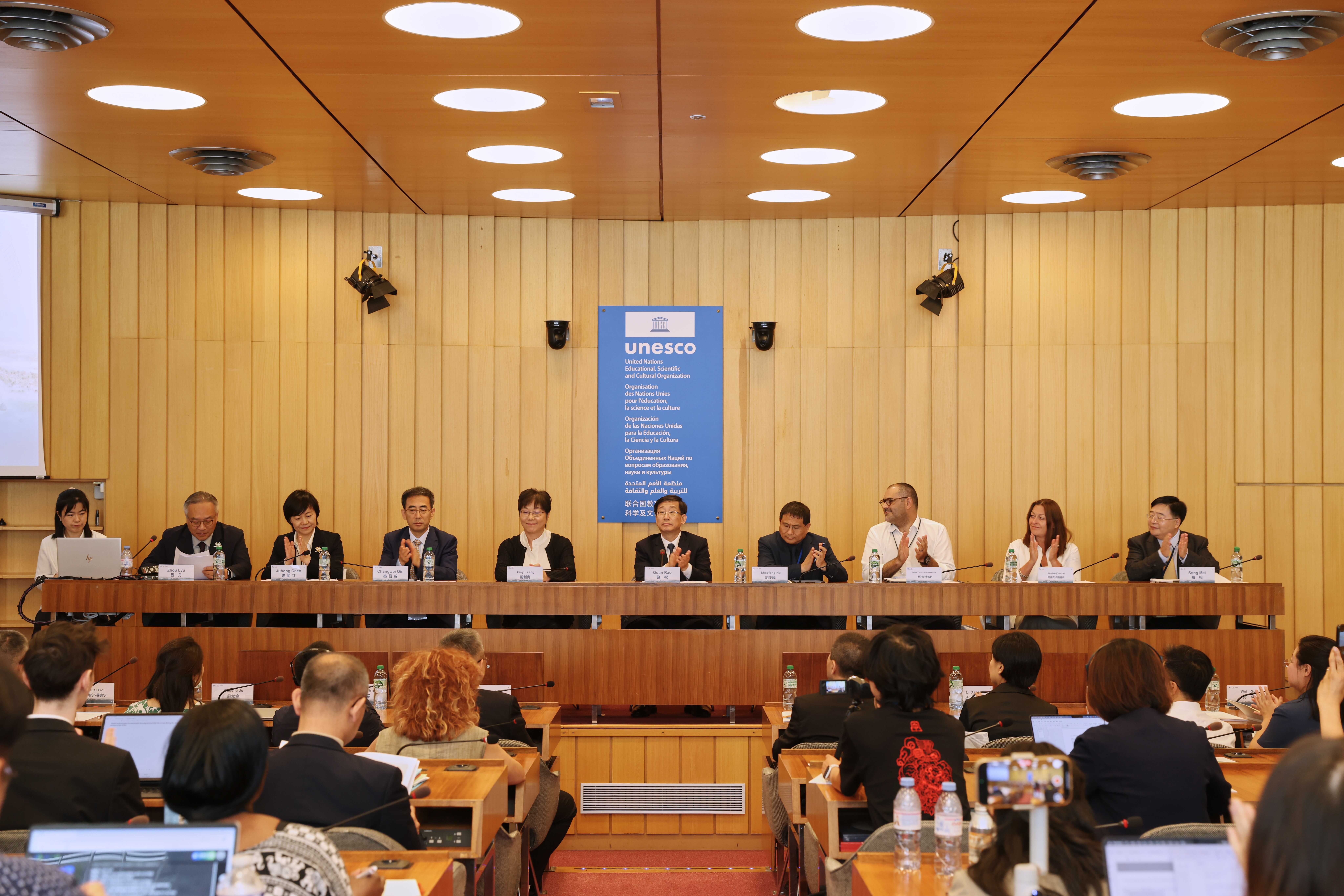Digital Technologies Highlighted as Key to Sustainable Development of World Heritage Sites
A high-level side event titled "Digital Technologies for the Sustainable Development of World Heritage Sites" took place on July 12, 2025, at UNESCO Headquarters in Paris during the 47th session of the World Heritage Committee. It was co-organized by the International Centre on Space Technologies for Natural and Cultural Heritage (HIST) under the auspices of UNESCO, the United Nations Satellite Centre (UNOSAT), Beijing Central Axis Protection Foundation, and Tencent's Sustainable Social Value Organization.
Bringing together over 120 participants from more than 20 countries, the forum underscored the transformative role of digital technologies in safeguarding and managing World Heritage sites. It featured keynote speeches, thematic presentations, and the launch of new digital tools supporting heritage conservation.
RAO Quan, Vice Minister of Culture and Tourism and Director of the National Cultural Heritage Administration of China, delivered the opening remarks at the forum. He was joined by GUO Huadong, Member of the Chinese Academy of Sciences and Director of HIST (via video); YANG Xinyu, Ambassador and Permanent Delegate of People's Republic of China to UNESCO; QIN Changwei, Secretary-General of the Chinese National Commission for UNESCO; HU Shaofeng, Director of Science Policy and Basic Sciences of UNESCO as well as representatives from the International Council on Monuments and Sites (ICOMOS) and Tencent. The forum was chaired by Professor LYU Zhou of Tsinghua University.
In his address, Guo highlighted HIST's second-phase achievements which UNESCO acknowledged that made significant contributions to UNESCO's Goals and announced the plan to collaborate with global partners to promote the International Digital Sustainable Development Goals Programme, a new International Big Science Program endorsed by UNESCO as part of United Nations International Decade of Sciences for Sustainable Development(IDSSD) and committed to leveraging digital technologies to advance the Sustainable Development Goals (SDGs) through digital innovation, real-time monitoring, and policy support.
Qin emphasized China's important role as a strong supporter, active participant and important promoter of the Convention, including the establishment of UNESCO Category-2 Centres and Chairs, and expressed the willingness of Chinese National Commission for UNESCO to cooperate with various stakeholders to facilitate international exchanges and cooperation on World Heritage conservation, to jointly safeguard the common wealth of humanity and to contribute to building a community with a shared future.
During the event, Associate Professor LUO Lei from HIST presented HIST's major activities on the conservation, management and sustainable development of World Heritage sites. The Beijing Central Axis Protection Foundation released a one-year progress report following the site's World Heritage inscription and launched the international version of its "Cloud Central Axis" digital platform.
Experts from UNESCO's World Heritage Centre, Tencent, UNOSAT, and ICCROM shared cutting-edge applications of AI, gaming, and geospatial technologies in heritage preservation.
The event demonstrated the increasingly important role of digital technologies in the protection of World Heritage sites and strengthened global partnerships for the implementation of the World Heritage Convention and the UN 2030 Agenda for Sustainable Development.

A scene of the event. (Image by AIR)



News & Events